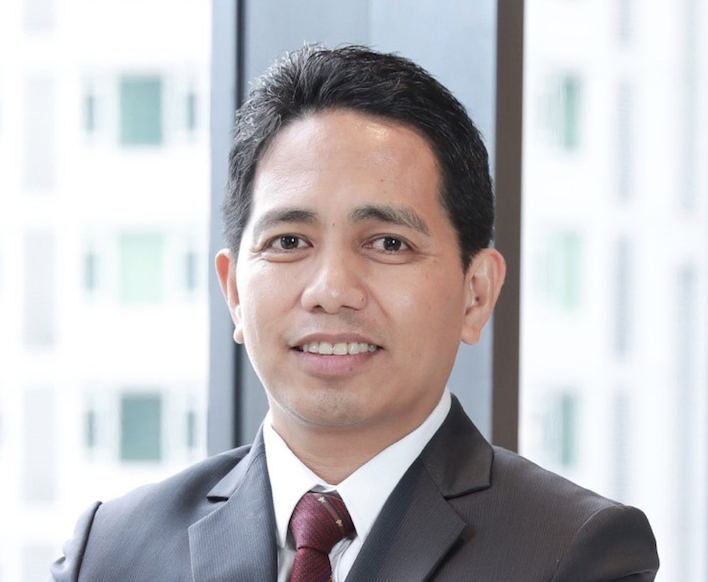Elmar B. Galacio CFE DiplCIArb FCIArb
Elmar (Deputy Managing Partner at Cruz Marcelo & Tenefrancia) is a lawyer and arbitration practitioner in the Philippines and other jurisdictions for over 15 years. After successfully hurdling the prestigious, challenging and exciting Oxford Diploma Course in International Commercial Arbitration in the United Kingdom in 2018 and the mandatory peer interview the year after, he became a Fellow of the Chartered Institute of Arbitrators (CIArb). He is also a member of the International Chamber of Commerce (ICC) Institute of World Business Law. He is a senior litigator and Senior Partner at the Cruz Marcelo & Tenefrancia Law Offices in the Philippines and was Deputy General Counsel of the Integrated Bar of the Philippines (IBP). He is also a Certified Fraud Examiner (CFE) registered with the Association of Certified Fraud Examiners (ACFE) in the U.S.A. He speaks English, Filipino, Cebuano and Nihongo.
Why have you decided to specialise in arbitration and adjudication? Tell us about your legal journey to ADR.
After graduating from the University of the Philippines College of Law in 1997, my paper for my Master of Public Policy in Japan in 2000 was ADR in labor relations.
When I was counsel in construction arbitration, I was drawn into its technical aspect, notwithstanding the seemingly endless rush necessitated by the speed at which the panel of arbitrators steered the process. I realized that the courtroom need not be an exclusive venue, and ADR can be an efficient neutral refuge. In the scheme of dispute resolution, ADR can ease the heavy burden of courts. So I honed my skills in ADR, attended trainings locally and internationally, obtained credentials and accreditation, and participated in activities of and enlisted in arbitration communities.
In retrospect, I think my family somehow reared me in a platform conducive to a career in dispute resolution. My parents, now retired from government service, both wanted to be litigators. Two uncles were in dispute resolution: A judge and a litigator. I wanted to be a litigator-advocate and/or a judge (of course I would realize later that this cannot be practiced simultaneously). Wonderfully in ADR, I am a counsel-advocate in a proceeding and be a resolver-arbitrator in another.
How is your arbitration/adjudication practice different from your general litigation experience?
I have observed that generally, arbitration practitioners approach the dispute resolution process with a sober consciousness to resolve the dispute in a less adversarial and expeditious, yet participative and cooperative atmosphere. There is that sense of belongingness as a community.
Being in arbitration/adjudication practice has allowed and provided me the opportunity to see and manage the dispute resolution process from both ends of the spectrum: From the perspective of an advocate staunchly advancing the interests of the client and that of an arbitrator/adjudicator objectively minded to secure and lead the parties and counsel to mutual understanding of and commitment to achieving resolution of the dispute in a fair and speedy manner.
What do you consider to be the biggest challenge in your career?
I consider a big challenge currently in our jurisdiction is on how best to contribute in the promotion of arbitration and ADR as preferred mode of dispute resolution. This involves getting relevant sectors into accepting and employing ADR, and doing so can be daunting. This requires conducting sessions and lectures before companies, bar associations and legal and related practitioners, with initial focus on providing for ADR in contractual stipulations or by way of submission agreements. Meaningful presence and visibility in ADR-related activities and proceedings are indispensable in cultivating a network and earning a reputation conducive to appointment as arbitrator or counsel. A bigger challenge is in actively involving the judicial machinery for its keen understanding and effective assistance in enforcing ADR-related measures.
What is the best thing about being a Fellow of the CIArb?
Being in a community of Fellows in the CIArb gives us the rare opportunity to share with and learn from each other, especially on valuable best practices and meaningful insights on various aspects affecting arbitration, adjudication and ADR in general. Because this is a badge of expertise in the field, being a CIArb fellow gives the relevant sectors and clientele the assurance of utmost professionalism, integrity and proficiency in ADR. There is a sense of personal and professional achievement that boosts my confidence in this field.
Are there any interesting developments in ADR in the jurisdiction where you are based?
Yes. ADR, and arbitration in particular, is consistently gaining milestones in relevance and efficiency in the Philippines. It is poised to being a preferred seat in international arbitration. Recently, it launched the Philippine International Center for Conflict Resolution (PICCR) for institutional arbitration, among others. This is a welcome addition to the Philippine Dispute Resolution Center (PDRCI) that mainly caters to commercial arbitration and to the Construction Industry Arbitration Commission (CIAC) on construction arbitration. Arbitration practitioners are steadily increasing in number, as trainings have been conducted regularly by these institutions. This year, we have our first Arbitration Day.
Tell us about your interests, hobbies or any out of work activities.
I often go swimming either in the pool or in a natural spring or sea in my home province island of Bohol in the Philippines, outside Manila where my office is located. Or I travel with my family during breaks from work. I have particular interest in backyard farming, into crop cultivation, and planting trees and flowers. This is because I was raised in the province as a child, where the townsfolk were mainly involved in agriculture.
